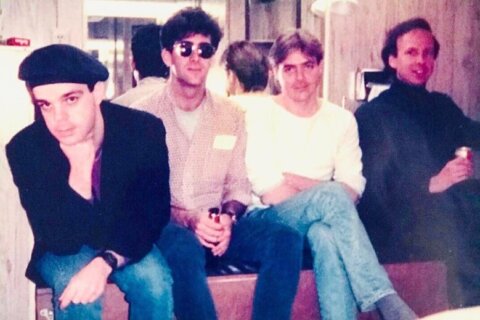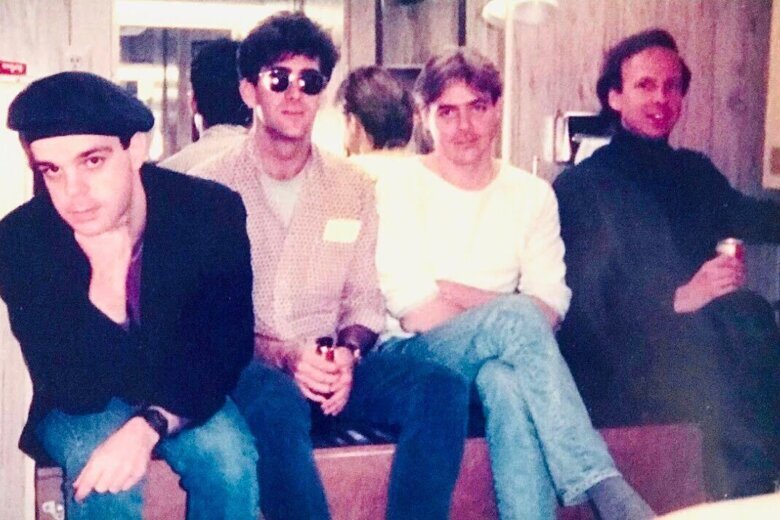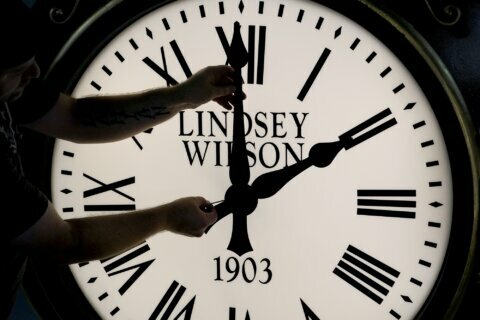Washington-area music fans, spanning the early days of D.C.’s punk scene through today, have heard music performed and produced by Ted Niceley.

What they didn’t know is that the “now 65-plus” musician — whose rock-solid bass lines provided the bottom for The Razz in the 1970s, Tommy Keene in the ’80s, and whose production of bands in the ’90s, including Fugazi, earned accolades — struggled with a lifelong learning disability.
Ted Niceley didn’t know it either.
During successful careers as a musician, producer, and later as a pastry chef in Albuquerque, New Mexico, Niceley nursed a disquieting question that had nagged him his entire life.
“About five years ago, I asked my therapist at the time: ‘Is there any kind of condition or disorder that has to do with math, like dyslexia?'”
Niceley was trying to pinpoint the cause of a challenge that affected his life as a child through today. He recently learned the name: dyscalculia.
According to the Learning Disabilities Association of America: “Dyscalculia is a specific learning disability with an impairment in mathematics, which can affect calculations, problem solving, or both. It impacts all sorts of numerical tasks and it is inborn, meaning you are born with it.”
The DSM-5, the latest edition of the Diagnostic and Statistical Manual of Mental Illnesses, of the American Psychiatric Association, the main guide for mental health providers, describes dyscalculia as “significantly below average skills in number sense, memorization of arithmetic facts, accurate or fluent calculation, and/or accurate math calculations.”
“When I hit fourth grade, when I was 10, I just hit a wall with math,” he told WTOP. “My mom was a teacher, nobody knew what was wrong with me, it was very, very frustrating.”
Niceley recalled unpleasant experiences, when presented with math challenges: “I’ve had these ridiculous tests where people tell me to count backward from 100. I’ve never, ever been able to do that.”
‘I’d just feel it:’ Music came more naturally than math
Earlier this month, Niceley shared on Facebook a CNN report that drummer Larry Mullen, Jr., of U2, recently learned he has dyscalculia.
According to Mullen, “counting bars is like climbing Everest.” In rock music, it’s common for music bars to be made up of four beats.
The interaction between a drummer and bass player is instrumental in establishing a song’s groove.
“I can’t read music, I never even tried,” he said. “I just felt it, naturally, and I think mainly because rock ‘n’ roll and R&B (rhythm and blues) is all pretty much about 16 measures.”
He now realizes his dyscalculia played a role in frustrations in other parts of his careers. As a music producer, he struggled with Pro Tools music software.
As a pastry chef, “You’ll lose track if you’re doing something,” pantomiming adding flour to a mixing bowl. “That’s one cup, that’s two cups, that’s three cups. Was that three? I don’t remember.”
In terms of treatment, dyscalculia is treatable in children because their brains haven’t yet finished developing, making it possible for them to learn skills and develop abilities they need to adapt to this condition, according to the Cleveland Clinic.
Looking back, Niceley remembers well-meaning friends suggesting: “You’ve just got to work harder,” and feels for today’s young people who know they are struggling with math, without a dyscalculia diagnosis.
“That’s like the mathematical version of telling a person who has major depressive issues to ‘just pull yourself up by your bootstraps,'” Niceley said. “That’s just not possible.”
Get breaking news and daily headlines delivered to your email inbox by signing up here.
© 2024 WTOP. All Rights Reserved. This website is not intended for users located within the European Economic Area.









